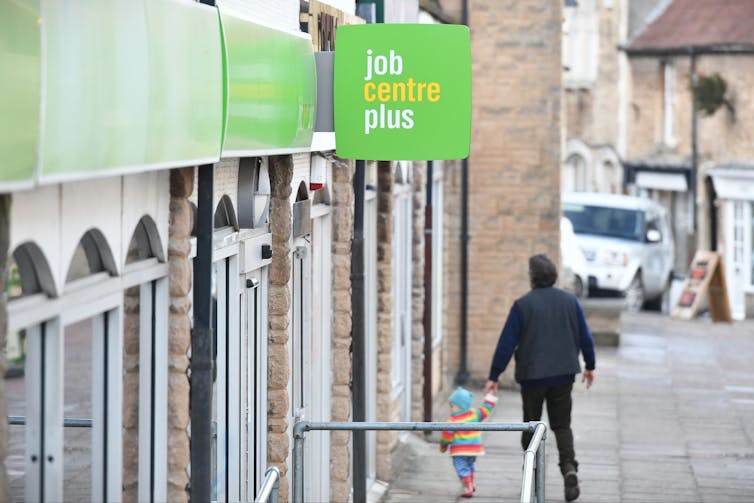
The recent cases of seven-year-old Hakeem Hussain, 16-month-old Star Hobson and six-year-old Arthur Labinjo-Hughes, all of whom died as a result of horrific abuse and neglect, have rightly led to questions as to how and why these children died. They have also led to criticism, from politicians and the media alike.
Some of this criticism may be legitimate. We don’t know all the facts of every case, but it’s possible that the individual frontline workers involved might have been unable or unwilling to undertake their duties. Their senior leadership, too, may not have been up to the task. Genuine mistakes might also have been made.
However, this is by no means the complete picture of child protection work. Despite the dearth of reliable data –- which is, itself, an indictment of the political oversight of this field – there is some evidence that indicates that many professionals involved in child protection and vital, wider family support are effective. In England, 35% of children’s social care departments are rated as “good” and 12% as “outstanding”. The UK has been ranked first among 60 countries for its response to child sexual abuse and exploitation.
Rather, then, the criticism reflects a profound collective failure to appreciate the scale and complexity of child protection as a societal – and systemic – problem. If children are to be protected and families supported, these systemic failures have to be addressed.

The ever-increasing scale of child protection work
In the year ending March 2021, children’s social care in England received almost 600,000 referrals from people concerned about children’s wellbeing. Many of the families in which these children live have major, if not massive, problems, which the professionals involved in child protection are charged with addressing. Domestic abuse and mental health are among the most common.
Much child protection work is not in fact about immediately preventing abuse and neglect, although this is invariably at the forefront of practitioners’ thoughts. Instead, it is about the often fraught task of working with parents so they are more able and more willing to care for their children appropriately.
Previously, practitioners involved in child protection were expected to respond to four major types of maltreatment: emotional, physical and sexual abuse, and neglect. Over time, though, they have been required to tackle an ever-expanding range of concerns, including breast flattening (the application of force to the breasts of young girls to restrict their development), child criminal or sexual exploitation, child marriage, child trafficking, female genital mutilation, online abuse and radicalisation. The child protection task has, therefore, increased not only in scale but also complexity, rendering it yet more challenging.
How children’s social workers face organisational challenges
In 2021, while 2% more people joined the social worker profession, as compared to the previous year, 15% of those already employed left. There is currently a 17% vacancy rate within the sector; and agency staff occupy 16% of social worker posts.
This level of churn is a symptom of the pressure social workers are under. It also exacerbates existing problems, causing further disruption to services and greater pressure on staff.

According to the most recent government figures, social workers have an average of 16 cases at any one time. This is only slightly above the recommended range, as specified by a 2003 government-commissioned review, of 12 to 15 cases.
However, a recent survey among social workers, by the Community Care consultancy, reveals that the average is actually closer to 26 cases per person. It also shows that cases are becoming more complex. More than one third of social workers in this survey stated that their caseloads are “completely unmanageable”.
A second survey, by the British Association of Social Workers, found that 96% of practitioners have to work overtime – overtime which is invariably unpaid and for which they often cannot claim time off in lieu. Insufficient time with families, an absence of other support services, excess administrative tasks, a lack of supervision, and media and public criticism, are just some of the other legion pressures facing social workers.
Those surveyed by Community Care reported that these working conditions have left them feeling “deflated, burnt out and extremely tired”. This, they said, has, in turn, affected the quality of their work.
Some authorities have gone so far as to state that there is a “crisis” in child and family social work. Given that most public services – the judicial system, mental health services, the NHS, policing, the prison service, the probation service, schools and social care, even dentistry – are judged as being currently in “crisis”, this should come as no surprise. Indeed, “crisis” appears to be the default position now in public services.
In 2021, the government, ostensibly in response to concerns surrounding children’s social care, commissioned the Independent Review into Children’s Social Care. The review’s final report is due by the end of May 2022. It has come in for a considerable amount of criticism, which is unusual for a child protection-related review. Scholars, myself included, have voiced concerns over various aspects of the review, including its independence, scope and timescale.
The leaders of the review, by contrast, have claimed that it represents a “once in a generation opportunity to transform the children’s social care system”. Such statements represent a dangerous naivety about the complexity and challenge of child protection work, and the ability of a review to transform it. As I have pointed out, like innumerable reviews before it, this one is likely to have little, or no, beneficial impact.
Both the National Audit Office and the Public Accounts Committee have lambasted successive governments for their gravely negligent attitude to children’s social care. What is needed is not yet another review but action. Specifically, a genuine and massive commitment – with the requisite investment of time and energy – on the part of a competent government to improve the child protection system, and, for that matter, all other areas of public service.
Bernard Gallagher does not work for, consult, own shares in or receive funding from any company or organisation that would benefit from this article, and has disclosed no relevant affiliations beyond their academic appointment.
This article was originally published on The Conversation. Read the original article.







